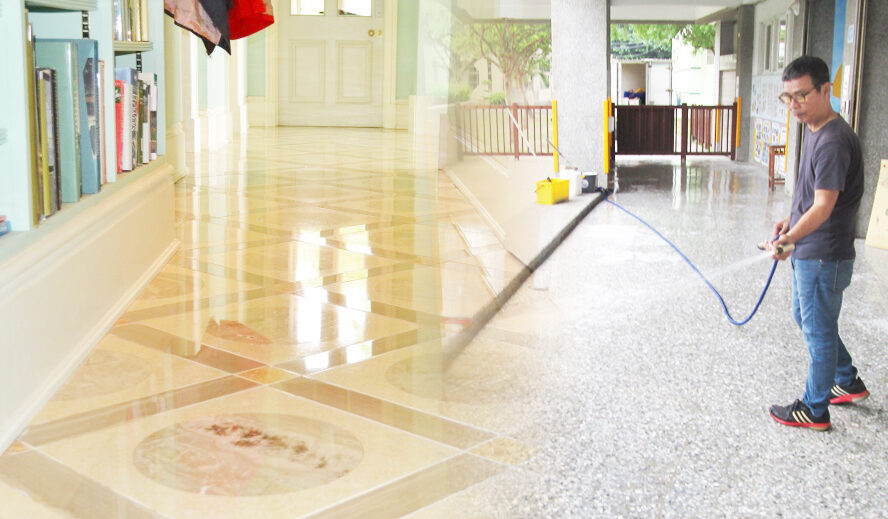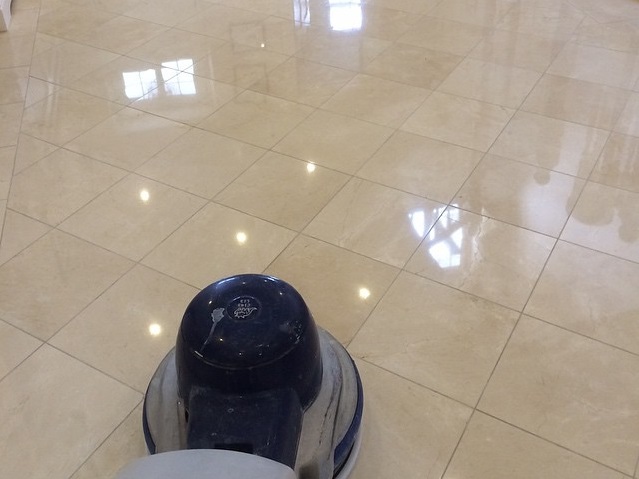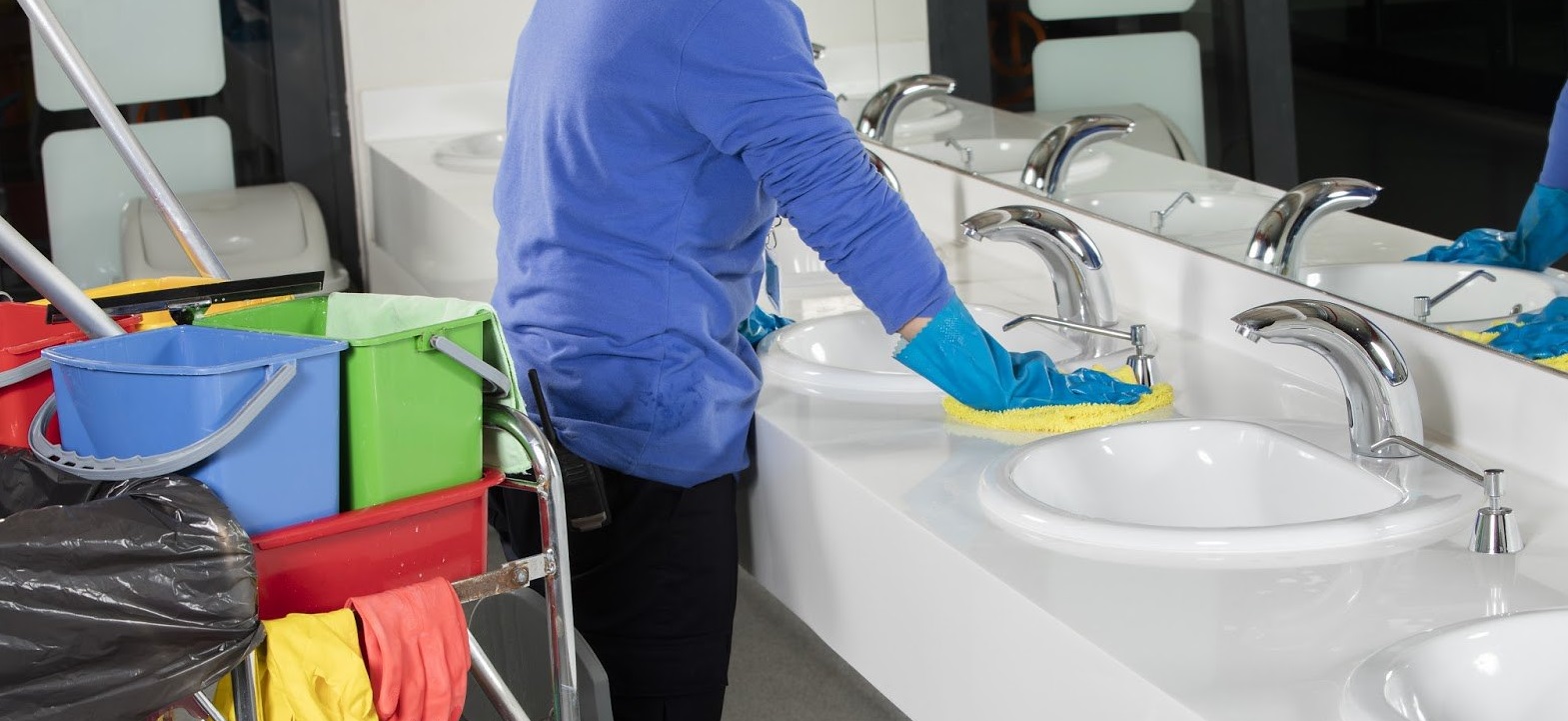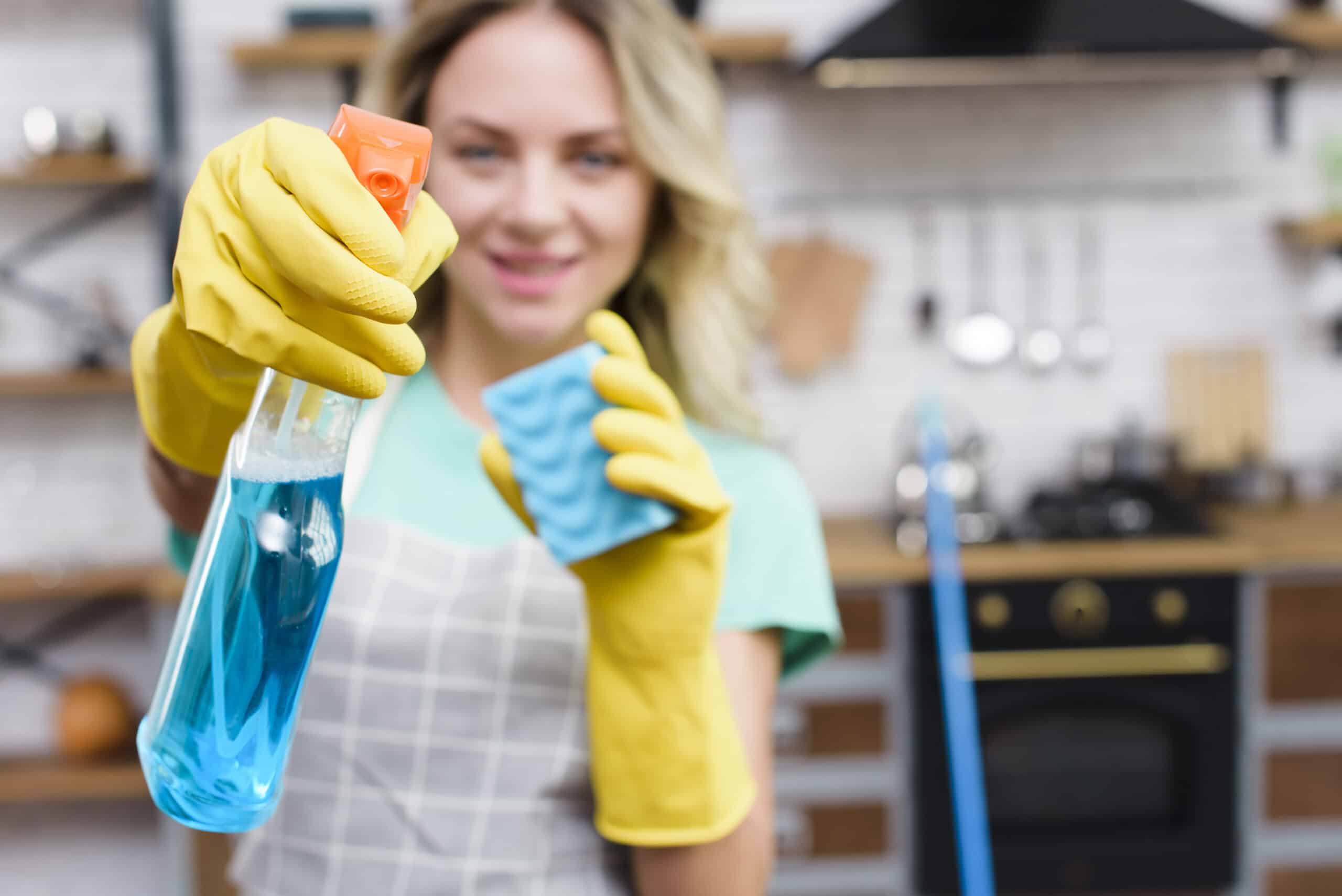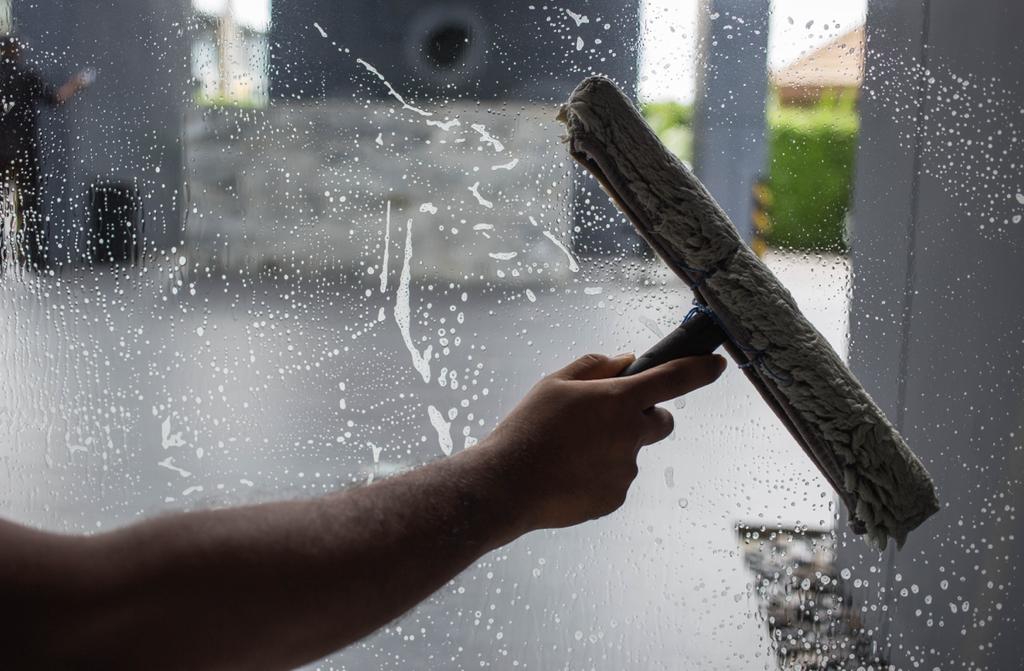How To Clean Marble Floors
Table of Contents
Getting Your Marble Floors Clean
Marble floors are exquisite. Their veining design and glossy exteriors are quite a sight to see. An ordinary house gets a sense of royalty and class when spotting a marble floor. Cleaning marble flooring is, however, another story altogether. Due to its porous nature, cleaning marble can be an uphill task if you are clueless.
You can easily damage your marble floor if you do not clean it well or use the proper cleaning solution. A professional marble cleaner can save your marble floor from degrading due to their experience and expertise when handling this elegant but delicate type of floor.
How Are Marble Floors Made?
Apart from making floors, marble has been used for many other uses since time immemorial. Ancient Greeks used marble to make grand sculptures because it was easier to carve due to its softness.
Marble comes in various colours, from black, pink, red, and many other shades. Today you can find marble in multiple rooms in residential and commercial premises, from kitchens to bathrooms.
Natural Vs. Cultured Marble
Natural Marble
Are you considering installing or adding more marble to your property? If so, you can choose between natural marble and cultured marble, depending on your preference. Natural marble is stunning. It is made up of calcite that creates natural veining, making it very attractive to the eye. Its pattern is not constant, which allows it to change its shades and natural design, which adds to its stunning nature.
It helps a lot to have a very competent installer if you want an almost perfect floor in your house. Due to its porous nature, an installer has to be very careful when installing natural marble in moist places such as bathrooms or kitchen areas. If you go ahead and install natural marble in your bathroom, you should ensure that the marble flooring or walls are protected with a suitable and quality sealant.
Cultured Marble
On the other hand, cultured marble is man-made. It is manufactured by combining polyester and crushed marble dust. Doing so allows the manufacturers to create the intended veins or colour on the marble. Cultured marble is not as porous as natural stone marble because of the gel coat that seals its surface. It is also glossier in appearance when compared to natural marble and also tends to have uniform veins.
Cultured marble is popularly used in luxurious bathrooms, vanity tops, and kitchen countertops. This is because of its water-resistant nature. You should ensure that you clean cultured marble carefully. Despite its waterproof nature, you should be mindful and careful not to use harsh chemicals when cleaning it.
This is because harsh chemicals might erode its protective layer and leave the marble more exposed and vulnerable. It is wise to clean this type of marble with non-abrasive tools and cleaners as you would natural marble. Here are factors that you should consider when it comes to cleaning your marble floor.
Factors To Consider When Cleaning Marble Floors
Remove Dust and Dirt
Use a non-abrasive sweeper to sweep off the dust from your marble floor regularly. Ensure that you do not use tools that will damage your marble floor. Sweeping is a simple but effective way of cleaning your marble floor. You can choose to use either a dust mop or a dry mop to clean it.
Using these simple tools is recommended because they tend to have microfiber cloths at the end, which are very efficient in collecting hair, dust, and dirt and are gentle on marble floors. If you are looking for a suitable broom to do the cleaning, use flared brooms to do your daily sweeping. They are a bit softer than unflared brooms hence great for cleaning marble floors.
Stay Clear of Vacuums
When cleaning your marble floor using a vacuum cleaner, ensure that the vacuum has rubberised wheels for a smoother ride. Beware of rough brushes like beater rolls; these types of brushes can wreak havoc on porous marble floors. When using vacuums to clean your marble floors, ensure that you do not apply a lot of pressure. It is also good to have a vacuum that has hard floor settings.
How To Wash And Clean Marble Floors
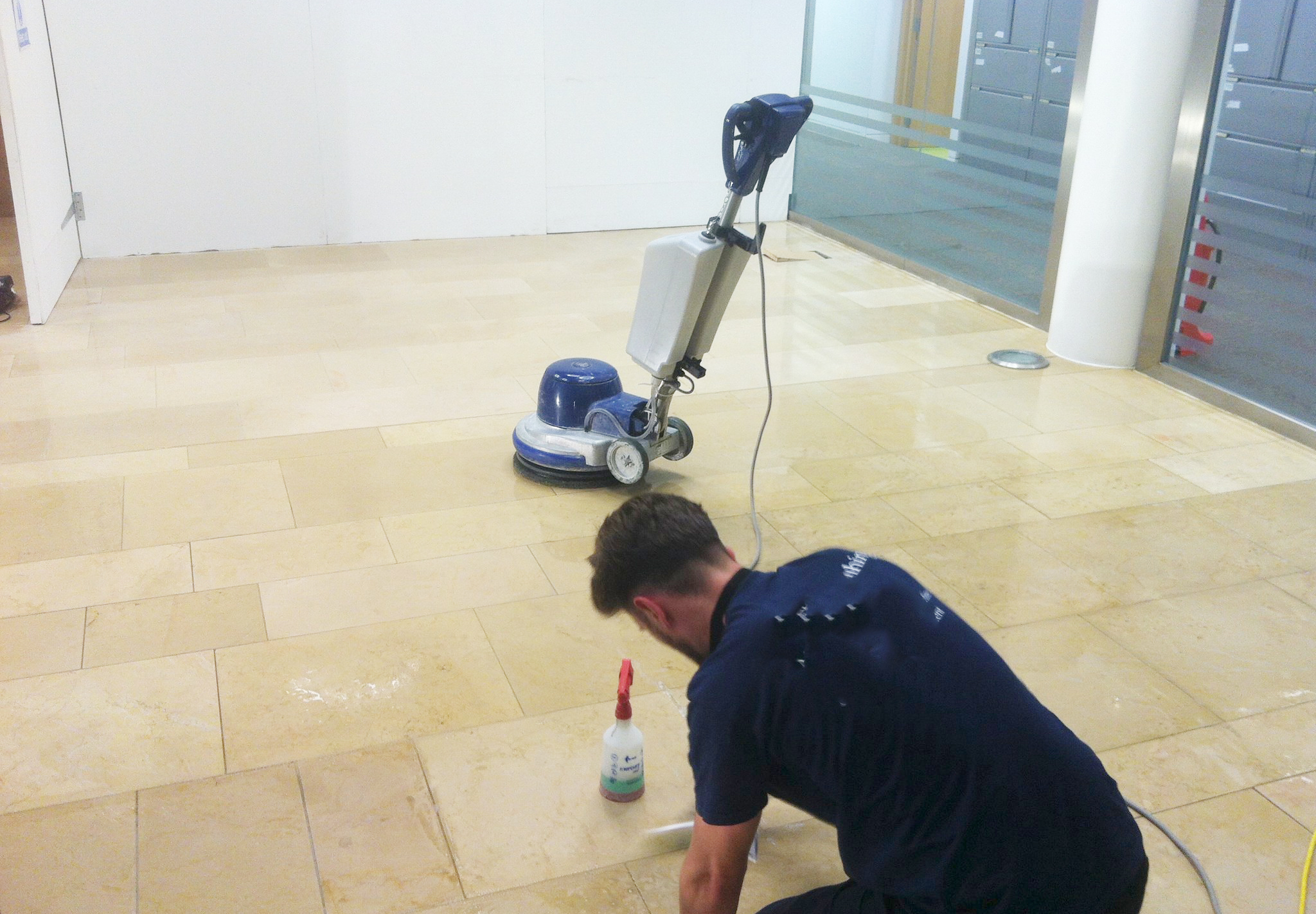
When it comes to how to clean marble floors, you should steer clear of using chemicals or scrubbers to do the job.
Here are the tools that you will need when washing your marble floor:
- pH-neutral soap
- Distilled hot water
- A soft clean cloth or towel
- Clean water for rinsing
- A soft mop (preferably microfiber)
Step One: Use distilled hot water
Since you will not be using rough brushes and chemicals, hot water will come in handy at removing marble stains. Boil enough water in a burner, kettle, or stove, and get ready to wash your marble floor. Hot water has the ability to cut through grease, dirt, and tough stains that could be stuck on your marble floor.
Using distilled water to do this kind of washing is very crucial. This is because distilled water has other minerals removed from it hence leaving behind pure water. By using distilled water, you will not be at risk of staining your marble floors. You can either choose to make distilled water at home or buy it at your local grocery store.
Step Two: Use a mild cleaning detergent
Because natural marble is porous, you will need a mild detergent to clean your floor. Try to find suitable pH-neutral cleaners. They are usually safe and are less likely to irritate your skin if they happen to spill on you accidentally. Afterwards, follow the instructions provided on your preferred cleaning product and add a good amount of hot water.
Now use a soft microfibre mop to clean your marble floors. You can either use a regular manual mop or a spin mop. You will find it more effective to use a spin mop because it is easier to wring off the water if you need it to be damp as opposed to wet. When mopping marble floor, you should start at the farthest end of the room and move towards the exit or entrance.
This guarantees that you do not mess up any cleaned areas before they are dry when trying to access the uncleaned parts. Use short strokes because they are fantastic when it comes to marble floors. To avoid spreading dirt all over the floor, dip your mop in the cleaning solution and wring it often.
Step Three: Rinse the floor
When you are done mopping the floor, get a bucket full of clean, cool water and prepare to rinse the floor. Once again, start the rinsing stage at the farthest part of the room, then work your way towards the exit or entrance. Simply dip your mop in the water and wring it enough, then rinse your marble floors.
Quick Tips When Washing Marble Floors
As you wash your marble floors, keep an eye on the water. If it seems dirty and murky, replace the water ASAP. Frequently changing the cleaning water minimises the chances of your floor getting scratches or streaks caused by dirt or debris in the dirty cleaning water.
After cleaning your marble floor, you should dry it to avoid water damage. Use a soft clean, dry cloth or towel to wipe it. If it gets wet, you need to switch it. If you are drying a large area, you will have to improvise by wrapping a clean cloth or towel around a floor squeegee. Doing so will spare your back and knee from pain if you have to bend for long.
Maintaining Marble Floors And Preventing Damage
It is crucial to preserve your marble floor due to how expensive it is. Damages due to poor handling and cleaning practices can rob it of its luxurious touch. Here are a few essential tips that can help you to avoid destroying your marble floors:
- Do not let water stand on your marble floors for long. Marble tends to absorb water or any other liquid due to its porous nature. This makes it easy for your marble floors to develop stains or get discoloured.
- To avoid further damage to your marble floor, please do not allow it to air dry because this can take quite some time, and the marble can absorb the cleaning water and detergents.
- If you have a marble floor, please clean any spill as soon as it occurs. Use a microfiber cloth to dab and blot the spill. Avoid carelessly spreading the liquid on the floor by cleaning it from the edges of the spillage and working towards the centre.
- Do not use white vinegar to clean your marble floor. Vinegar is very acidic, with a pH level of about 2 to 3, which can easily damage your marble floor.
When selecting a cleaning detergent for your marble floors, please choose one with a neutral pH. These kinds of detergents tend to be gentle on marble. However, the downside is that they are not as effective at tackling tough marble stains as alkaline or acidic products. Therefore, this is where hot distilled water or hydrogen peroxide comes to the rescue.
The cleaning products to avoid include citrus cleaners such as orange or lemon, ammonia, and ceramic floor cleaners.
How To Remove Scuff Marks On Marble Floors
Sneakers and other types of shoes can easily cause scuff marks on your marble floors. Scuff marks can also result from dragging furniture along your marble floors. These marks are always tough to remove and can be frustrating to see on your marble floor as they are not appealing.
To remove these marks, use a tennis ball or felt pad dipped in a solution of water and mild detergent to rub along the marble grain. Do not rub the tennis ball or the felt pad in a circular motion because it can cause further damage to your marble floors.
Use A Sealant To Protect Your Marble Floors
It is also good to protect your marble floors with a sealant. You can buy it at your local supply store. It is recommended that you should not apply it by yourself. It is such a delicate process, and a professional is required to do this kind of work. However, if you want to take a risk, make sure you first try it on a small area that is somehow hidden.
Apply enough sealant on your marble floors and allow it to penetrate the natural stone. Afterwards, wipe the area with a clean cloth to remove any excess sealant. There are different types of sealants too. Some may need reapplication after about five years, while others may require reapplication every three years.
Professional Help To Clean Your Marble Floors
Marble floors are an expensive investment which means that they need extra care to maintain their pristine condition and guarantee their durability. There are quite a number of trustworthy local cleaning companies that can help you deep clean and maintain your marble floors. Their services ensure that your marble floors remain as luxurious as they were when they were installed.
Look for a professional cleaning company with good experience and expertise when it comes to cleaning marble. Otherwise, the cleaning tips mentioned above can help you clean and handle your marble floors yourself when needed.

